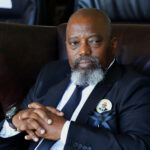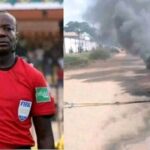1,900 killed, over 3,300 abducted in DR Congo
Published on August 15, 2019 at 12:09 PM by Face of Malawi
Armed groups in the Democratic Republic of the Congo (DRC) have killed almost 1,900 civilians and abducted more than 3,300 others in the DRC eastern provinces of South and North Kivu since June 2017 and still continue committing atrocities under patronage of senior political and military figures, a prominent human rights organization said on Wednesday.
According to the joint report of Human Rights Watch and the New York University-based Congo Research Group, atrocities of various armed groups in Kivu in the period between June 2017 and June 2019 include violent murder (1,041 incidents with 1,897 victims), mass rape (24 incidents with 100 victims) and abduction for ransom (848 incidents with 3,316 victims), in addition to hundreds of incidents of property destruction, political repression and clashes.
“Over 130 armed groups are fighting for countless reasons in Congo’s eastern Kivu provinces, making the region one of the most violent places in the world. Understanding who is committing the atrocities is the first step toward holding those responsible to account and ending the abuses,” the press release cited Lewis Mudge, Central Africa director at Human Rights Watch.
Over 130 armed groups are fighting for countless reasons in Congo’s eastern Kivu provinces, making the region one of the most violent places in the world. Understanding who is committing the atrocities is the first step toward holding those responsible to account and ending the abuses.
Moreover, senior political and military figures have used, or even created, armed groups to gain control over the country’s land and mineral resources or for taxation rackets, the watchdog added, citing field data from 15 Congolese researches.
“Congolese President Felix Tshisekedi, on his first trip in office to the Kivus in April, promised to redeploy troops that have been in the Kivus for a long time, to hold the people supporting armed groups accountable, and to increase support to military operations in the region.
While an estimated 2,000 to 3,000 combatants have surrendered or expressed an intention to do so since Tshisekedi’s inauguration, there is no functional demobilization program for them.
There have been no new prosecutions of Congolese army commanders for abuses or for supporting armed groups, and many abusive commanders remain at large,” the press release claimed.
The DRC leadership needs to work towards ensuring restoration of justice in the region, particularly by banning those responsible for mass atrocities from taking positions in the country’s military and establishing a judiciary unit specifically for serious international crimes, the watchdog said.
Since the mid-1990s, the DRC has been suffering instability and internal conflicts. Even though the Second Congo War, or the Great War of Africa, ended in 2003, clashes have continued in the eastern areas of the country, where various rebel groups still operate. The United Nations has deployed a mission in the DRC “to use all necessary means” for promoting political stabilization and protection of civilians under imminent threat of physical violence.
According to the UN estimates, DRC has an estimated 4.5 million internally displaced people from years of ethnic warfare, primarily in the eastern provinces of Ituri, North Kivu and South Kivu.
Credit : Africanews


